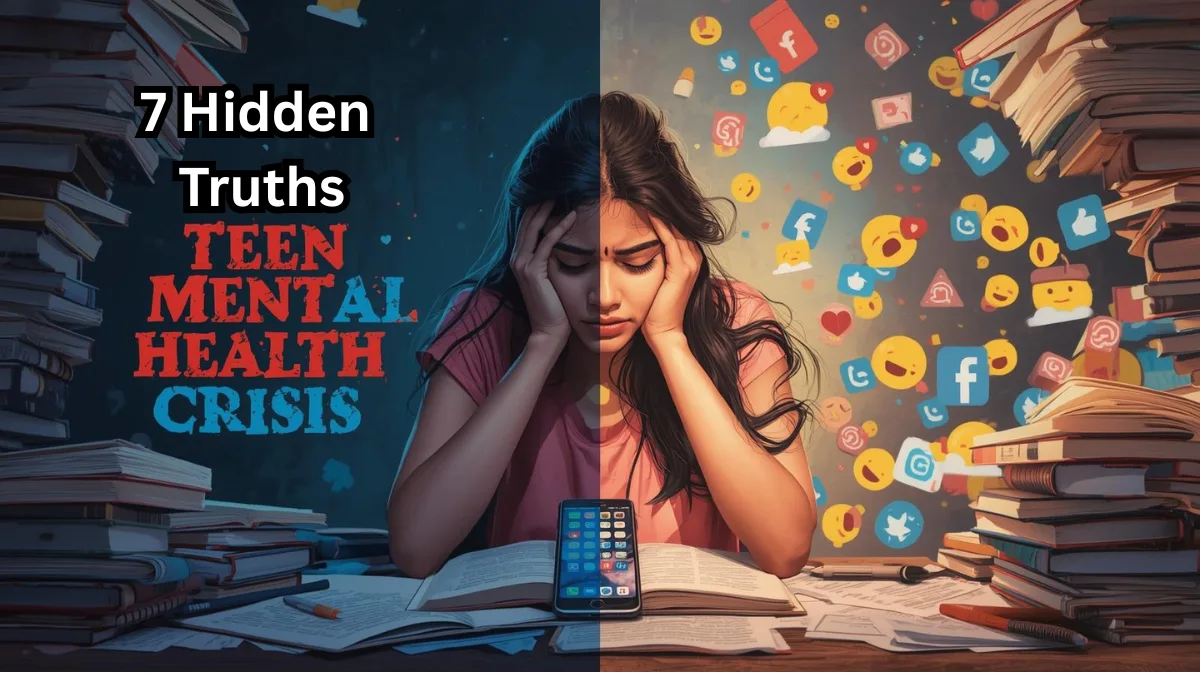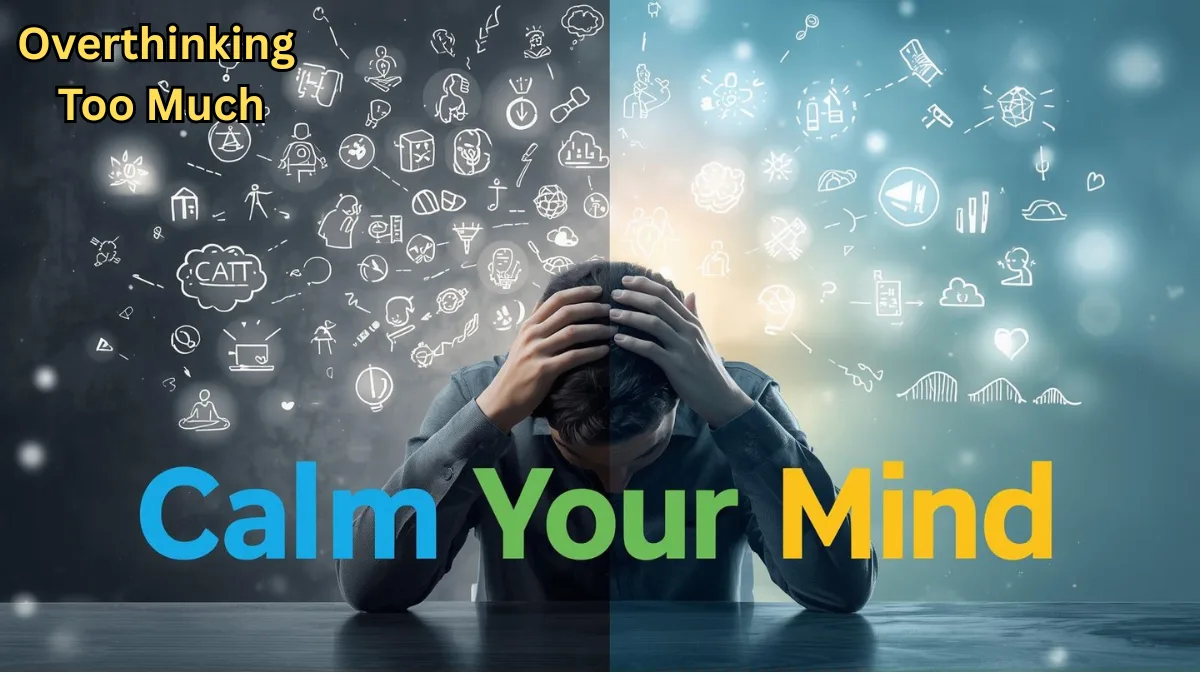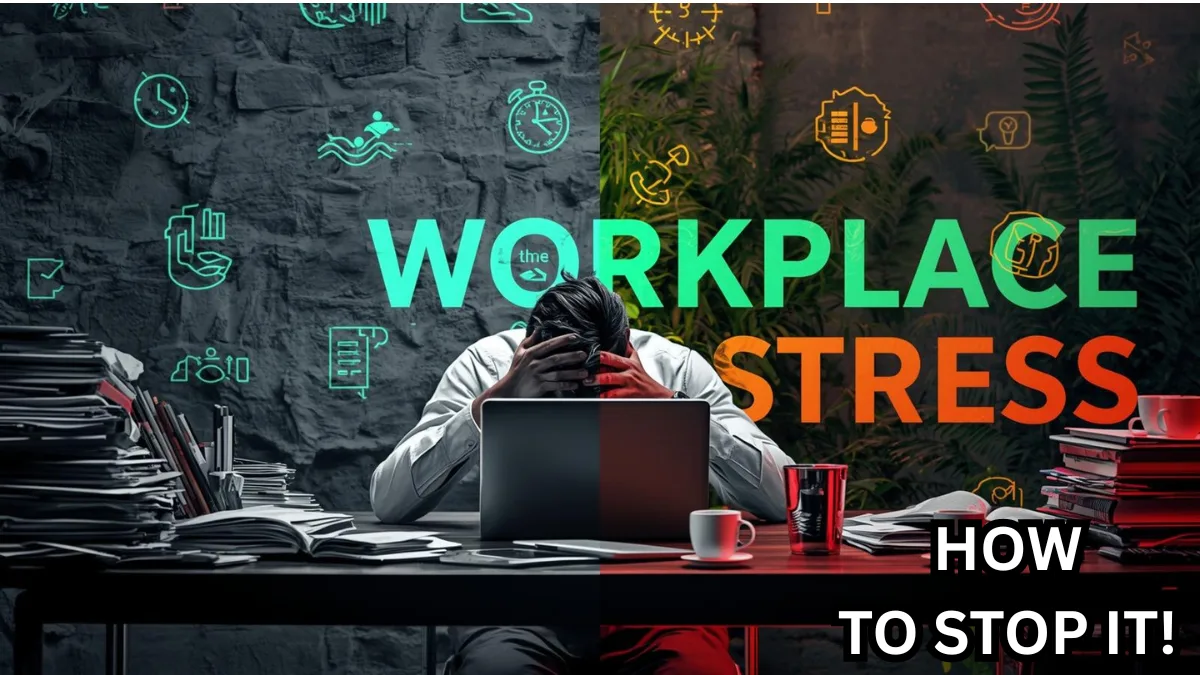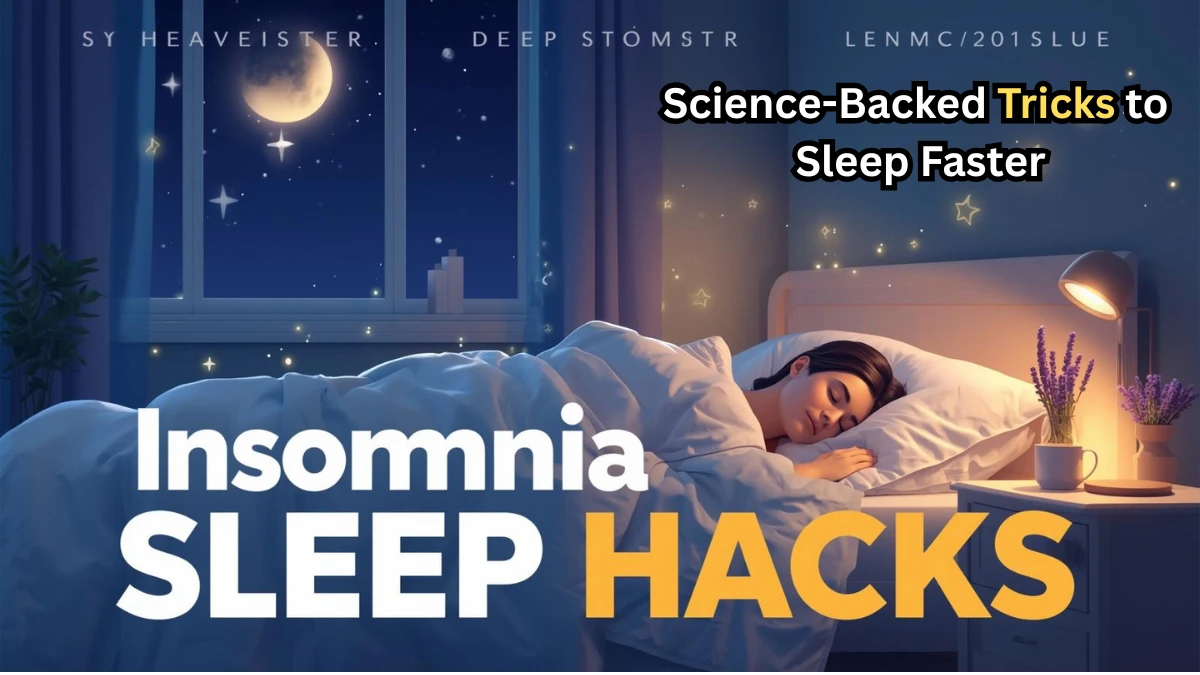📚 Discover 7 hidden truths about Teen Mental Health Crisis, exam stress & social media impact. Learn expert tips to reduce anxiety, boost mental wellness & support teens.
Teen mental health is a growing concern worldwide 😓. With increasing exam pressures and constant exposure to social media, adolescents are facing unprecedented levels of stress, anxiety, and depression.
Here are 7 hidden truths you must know, with expert insights and science-backed strategies to support teen mental wellness.
1️⃣ How Does Exam Stress Affect Teen Mental Health? 📖
Exam stress is one of the leading causes of anxiety, low self-esteem, and sleep disturbances among teenagers. Many adolescents feel that their self-worth is tied to grades, which amplifies mental strain.
Answer:
Exam stress triggers the release of cortisol, the stress hormone, which can impair brain function and emotional stability. Implementing coping strategies such as time management, mindfulness exercises, and structured study breaks can reduce anxiety and improve academic performance.
Expert Insight 👩⚕️:
“Exam pressure is natural, but unchecked stress can have long-term effects on adolescent mental health.” – Dr. Neha Sharma
2️⃣ Can Social Media Cause Anxiety or Depression in Teens? 📱
Constant exposure to curated lifestyles, peer comparisons, and online bullying can increase feelings of inadequacy and isolation among teenagers.
Answer:
Excessive social media use is linked to higher rates of depression and anxiety in adolescents. Limiting screen time, promoting positive online interactions, and encouraging offline hobbies can protect teen mental wellness.
Real-Life Example:
A University of Pennsylvania study found that reducing social media use to 30 minutes per day improved mood and decreased anxiety in teens.
3️⃣ Why Are Teens More Vulnerable to Mental Health Issues Today? 🧠
Teen mental health is particularly fragile today due to adolescent stress arising from biological, psychological, and social changes. Academic pressure, peer influence, and excessive social media exposure amplify emotional vulnerabilities, making teens more prone to anxiety, depression, and mood disorders.
Answer:
Understanding the unique developmental challenges during adolescence is key for maintaining mental wellness. Providing emotional support, encouraging open communication, and offering mental wellness tips like counseling and coping skills training can help teens build resilience against stress.
Expert Insight 👨⚕️:
“Teens face a perfect storm of stressors today—awareness and early intervention are crucial for protecting their mental health.” – Dr. Rajiv Mehta
4️⃣ How Does Sleep Deprivation Worsen Teen Stress? 🌙
Many adolescents sacrifice sleep to study late or scroll through social media, which worsens anxiety in teens and negatively impacts emotional regulation. Poor sleep increases irritability, mood swings, and cognitive difficulties, making it harder for teens to cope with stress.
Answer:
Teen stress relief starts with maintaining healthy sleep habits. Encourage consistent sleep schedules, limit evening screen time, and create a calming bedtime routine. These practices improve emotional regulation, reduce anxiety, and enhance academic focus.
Real-Life Case Study:
Lila, 16, struggled with late-night social media scrolling, which disrupted her sleep. By adjusting her sleep schedule and following a bedtime routine, she noticed reduced anxiety and improved focus within just 2 weeks.
5️⃣ Can Mindfulness & Relaxation Reduce Exam Stress? 🧘♀️
Coping strategies like mindfulness meditation, deep breathing, and journaling are highly effective for managing exam stress in teens. These relaxation exercises not only improve focus but also enhance self-esteem and emotional stability.
Answer:
Even 5–10 minutes of daily mindfulness can significantly lower cortisol levels and improve emotional regulation. Incorporating these techniques into daily study routines provides a boost in academic performance while supporting overall mental wellness.
Expert Insight 👩⚕️:
“Mindfulness is a simple yet effective tool for teens to navigate exam pressures and social challenges.” – Dr. Priya Kapoor
6️⃣ How Can Parents Support Teens Facing Mental Health Challenges? 👪
Parental involvement plays a pivotal role in teen mental health. Teens experiencing stress or anxiety often feel isolated or misunderstood, which can worsen emotional difficulties.
Answer:
Parents can provide effective adolescent stress relief by encouraging healthy routines, balanced screen time, regular check-ins, and access to counseling. Active listening, validating feelings, and teaching coping strategies foster resilience and emotional well-being.
Real-Life Example:
A Child Mind Institute study found that parental support reduces teen anxiety and depression symptoms by 30%, highlighting the importance of family involvement in mental wellness.
7️⃣ Are Professional Interventions Necessary for Teen Mental Health? 🩺
While many teens manage stress through lifestyle adjustments, some experience chronic anxiety, depression, or behavioral challenges that require professional support. Early intervention in teen mental health significantly improves long-term outcomes.
Answer:
Therapy for teens, including CBT (Cognitive Behavioral Therapy), group counseling, and school-based programs, is highly effective in addressing emotional and behavioral issues. When combined with healthy routines, mindfulness, and parental support, professional guidance maximizes results in managing anxiety in teens.
Expert Insight 👨⚕️:
“Professional support empowers teens to develop coping mechanisms and achieve mental wellness without stigma.” – Dr. Anjali Desai
🌟 Bonus Tips for Teen Mental Wellness
- Encourage physical activity 🏃♂️ to reduce stress and improve mood.
- Foster offline hobbies like reading, painting, or music 🎨🎵 for emotional balance.
- Promote healthy friendships and peer support 👥 to build resilience.
- Limit social media to prevent unhealthy comparisons and FOMO.
📚 Sources:
- American Psychological Association (APA) – https://www.apa.org/topics/children/teens-stress
FAQs Section ❓
Q1: How can teens reduce exam stress naturally?
A: Mindfulness, time management, exercise, and proper sleep routines are effective natural strategies.
Q2: How much screen time is safe for teens?
A: Limiting social media to 1–2 hours per day and promoting offline activities improves mental wellness.
Q3: When should parents seek professional help?
A: If anxiety, sadness, or behavioral issues persist beyond 2–4 weeks, consult a mental health professional.
Q4: Can lifestyle changes alone improve teen mental health?
A: For mild to moderate stress, yes. Severe cases often require combination of therapy and lifestyle interventions.
Call-to-Action 💬
- “Which strategy will you try first to support your teen’s mental health? Comment below!”
- “Share these tips with friends, teachers, or parents to help teens cope with stress naturally!”
✅ Conclusion:
The teen mental health crisis is real 📚, fueled by exam stress and social media pressures. Awareness, early intervention, and science-backed coping strategies like mindfulness, sleep hygiene, parental support, and professional guidance can dramatically improve adolescent mental wellness.










